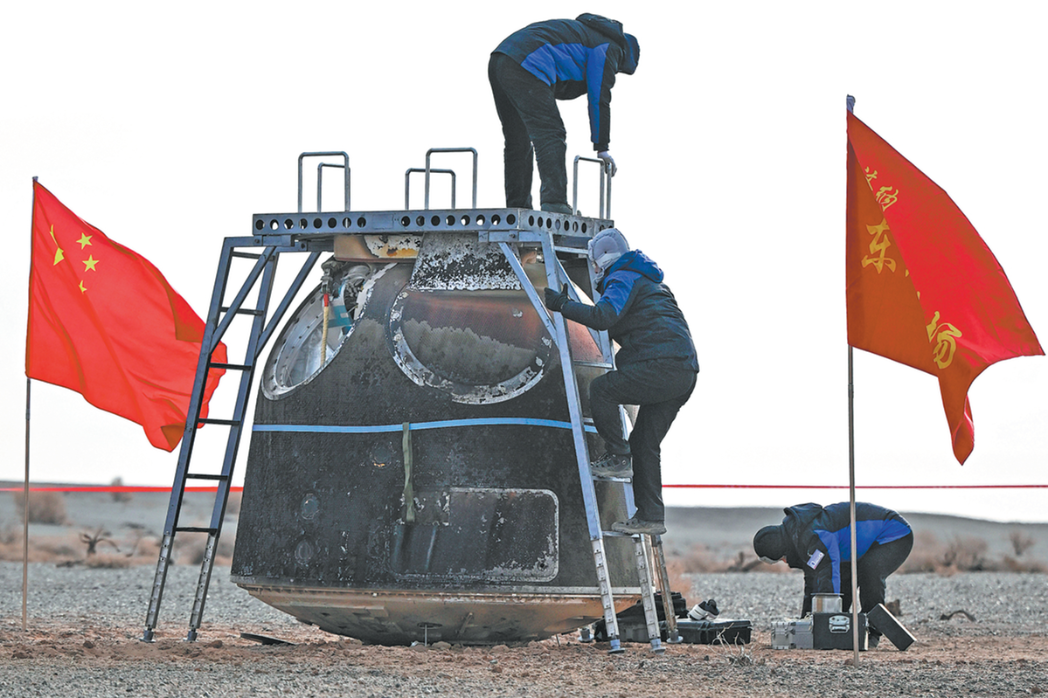'BRICS Plus' can enhance cooperation, development
By Mehmood Ul Hassan Khan | China Daily Global | Updated: 2022-06-13 09:05

Chinese State Councilor and Foreign Minister Wang Yi recently floated the idea of "BRICS Plus" to further promote humanity's common values of peace, development, equity, justice, democracy and freedom among developing countries through unremitting efforts to build a community with a shared future for mankind.
BRICS, which comprises Brazil, Russia, India, China and South Africa, accounts for nearly 42 percent of the world population, 27 percent of land surface and 32 percent of global GDP, and has always been committed to multilateral cooperation and a multipolar world order.
"BRICS Plus" reflects the true spirit of multilateralism and multiculturalism and could consequently guarantee the survival of emerging markets and developing countries. It would follow the principles of United Nations and oppose coercion against developing countries.
It would also enhance global security governance and safeguard world peace and tranquility.
Judging from complex global changes, the Chinese foreign minister is right in advancing the true spirit of solidarity and mutual assistance. South-South cooperation should be pursued and implemented on a larger scale, in broader areas and at deeper levels, so as to enhance the power of international discourse, agenda setting and rule making, and promote the development of a global governance system in a more just and reasonable direction.
Thus the "BRICS Plus" cooperation, as a platform for emerging markets and developing countries, is built for cooperation and development. Foreign Minister Wang welcomed more countries to join it in promoting democracy in international relations, making the world economy more inclusive and rationalizing global governance, in order to jointly create a bright and better future.
According to Wang, BRICS would pursue sustainable development goals and implement the mission of global governance. In this regard, he urged developing countries to work together to improve global governance and strive for greater space for development.
President Xi Jinping has urged the BRICS countries to reject a Cold War mentality, shun confrontation and work together to build a global community of security for all.
A growing concern is the geopolitics of polarization pursued by the United States and its Western allies, wherein the world is divided into a simplistic, irrational binary of allies and adversaries similar to the time of the Cold War.
BRICS could play a constructive role in dealing with these challenges and be a positive force in the international community. The emerging economies should be brave enough to tackle all challenges to promote peace and development, uphold fairness and justice, and advocate democracy and freedom in the world.
The good news is that BRICS is now preparing for expansion to include other large, emerging economies as members. The BRICS foreign ministers' joint statement said that discussions on the expansion process are ongoing and "the guiding principles, standards, criteria and procedures" for new members will be formulated through consultations and consensus among the present members.
It seems that at least four countries that are part of the Group of 20 large economies, including Argentina, have expressed strong interest in full membership in BRICS. The five current BRICS countries are G20 members as well. Thus, the forces of multilateralism and multiculturalism are on the rise.
A BRICS expansion could multiply the global influence of the bloc while also consolidating its principle of multilateralism through greater representation of developing countries. Hopefully, an expanded BRICS will have the potential to become a pivot for global growth, security and peace.
The developing world should pay particular attention to the Global Security Initiative proposed recently by President Xi. The initiative aims to create a security framework that replaces confrontation, alliance and a zero-sum approach with dialogue, partnership and win-win propositions. So it is a value addition in the regional security systems that face a balancing act in the days to come.
In essence, the Global Security Initiative is a holistic and comprehensive new security system that cares about security, economy, sovereignty, dignity and, last but not least, humanity. It pledges "six commitments"-the vision of common, comprehensive, cooperative and sustainable security; respecting the sovereignty and territorial integrity of all countries; abiding by the purposes and principles of the UN Charter; taking the legitimate security concerns of all countries seriously; peacefully resolving differences and disputes between countries through dialogue and consultation; and staying committed to maintaining security in traditional as well as nontraditional domains.
These ideals, once put into practice, would add certainty to a rapidly changing world. BRICS Plus and the Global Security Initiative can be catalysts for sustainable development and an equitable global security system.
The author is director of the Center for South Asia& International Studies in Islamabad, Pakistan.
























